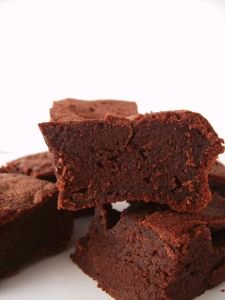The ways that we convince ourselves to avoid eating one of the food items we crave the most – chocolate – are endless. However, a lot of the stories we hear about chocolate have been proven wrong by recent studies. Want to get a real taste of the true facts about chocolate? Check out these myths and what health experts have to say about them.
Myth: “I shouldn’t eat chocolate because it will make me fat.”
Reality: While chocolate does contain cocoa butter, which is high in saturated fat, about one-third of chocolate fat stems from stearic acid. Although stearic acid is considered saturated fat, it does not raise the level of “bad cholesterol,” or LDL, as other fats do. Instead, the liver converts stearic acid to oleic acid, a monosaturated fat that is healthy for the heart. Chocolate is also healthy because it contains anti-oxidants, which provide protective reactions to keep damage from occurring in bodily tissues and cells.
Myth: “Chocolate is not good for me because it contains too much caffeine.”
Reality: It is true that chocolate contains caffeine-related compounds that are necessary stimulants for our human nervous system. However, chocolate has less caffeine than you think: while coffee can contain about 100 mg of caffeine, chocolate may have as little as 10 mg of caffeine. In addition to having a small amount of caffeine, chocolate is a rich source of nutrients like magnesium, phosphorus, copper and zinc.
Myth: “All types of chocolate are equally bad.”
Reality: Studies have shown that dark chocolate is indeed “healthier” than milk chocolate, simply because it contains more antioxidants, especially those called flavonoids. Dark chocolate retains about 95 percent of its flavonoids, making this plant-derived product healthy for the heart, the same as vegetables and fruits.
So, contrary to what people might tell you, chocolate does have healthy effects on our bodies, because it does not increase our bad cholesterol level, it contains nutrients and even gives us some needed energy. I’m not saying you should throw your healthy, balanced diet off by consuming too much chocolate – remember, chocolate still has calories! A balanced diet and exercise are still vital to a healthy heart, but you shouldn’t go on a guilt trip if you enjoy a small piece of Dove dark chocolate daily. If life is like a box of chocolates, then each piece should be enjoyed thoroughly.
For more information about dark chocolate, visit health web sites such as this one.







